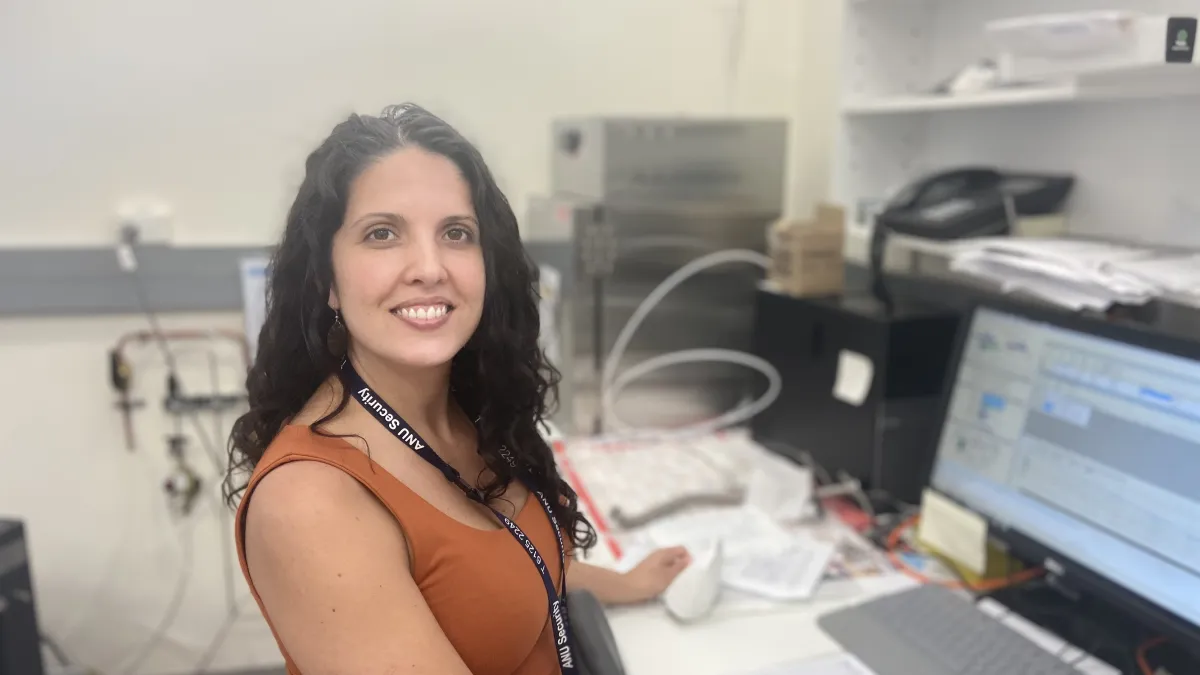Stable Isotope Laboratories
The Palaeoenvironment Stable Isotope Laboratory at RSES has a number of mass spectrometer facilities dedicated to particular types of analyses for δ13C and δ18O of carbonate samples, and δD, δ18O and δ17Oexcess of waters.
Groups
Content navigation
About
The Palaeoenvironment Stable Isotope Laboratory at RSES has a number of mass spectrometer facilities dedicated to particular types of analyses for δ13C and δ18O of carbonate samples, and δD, δ18O and δ17Oexcess of waters. The facilities support multiple studies of geologic, climatic and environmental processes taking place at the earth’s surface.
We specialize in the microanalysis of corals, speleothems and forams, as well as other biogenic carbonates and dolomites, using Kiel carbonate devices coupled to Finnigan/Thermo and Delta stable isotope ratio mass spectrometers. We also carry out analyses of water samples, including ice cores, using a Picarro L2140i cavity ring-down spectrometer. As well as the instrument labs, we also run dedicated sample preparation laboratories that include micro-milling, microscrope and sample cleaning facilities.
We also have the capacity to measure carbon isotopes in small organic and inorganic samples using a combustion EA-mass spectrometer.
Instrument 1: Finnigan MAT 251 + Kiel I microcarbonate preparation device
The 251 is an older dual-inlet stable-isotope ratio mass spectrometer that produces very high measurement precision on ‘larger’ samples of pure carbonate weighing between 120 and 220 micrograms.
External precision: δ13C (±0.04‰); δ18O (±0.06‰)
Access for external users for microcarbonate instruments is subject to availability of instrument time and a staff member to supervise.
Contact: Professor Nerilie Abram (nerilie.abram@anu.edu.au) in the first instance to discuss your project and access.
Instrument 2: Thermo MAT 253 + Kiel IV microcarbonate preparation device
The 253 is a new dual inlet / continuous flow mass spectrometer that produces very high precision on ‘smaller’ carbonate samples in the range of 40-180 micrograms. It can be configured to run different weight ranges where sample sizes within batches are highly variable.
External precision: δ13C (±0.04‰) and δ18O (±0.06‰)
Access for external users for microcarbonate instruments is subject to availability of instrument time and a staff member to supervise.
Contact: Professor Nerilie Abram (nerilie.abram@anu.edu.au) in the first instance to discuss your project and access.
Instrument 3: Delta + Kiel IV microcarbonate preparation device
This instrument routinely runs δ13C and δ18O on foram carbonate samples. It can be set up to run very small (less than 80 microgram) samples.
Contact: Prof Eelco Rohling (eelco.rohling@anu.edu.au) in the first instance to discuss your project and access.
Instrument 4: Picarro L2140i Cavity Ring-Down Spectrometer
This instrument measures δD, δ18O and δ17Oexcess of natural waters, including ice cores, and vapour. This is coupled with an autosampler for discrete water samples, micro-combustion unit, and dual-inlet for continuous air measurements. It is also capable of being moved to other laboratories to coupled with experiments or field deployed.
Contact: Professor Nerilie Abram (nerilie.abram@anu.edu.au) in the first instance to discuss your project and access.
Instrument 5: Sercon combustion EA-MS for organic and inorganic carbon
External precision: δ13C (±0.08‰) and δ15N (±0.15‰)
Contact: Professor Stewart Fallon (stewart.fallon@anu.edu.au) in the first instance to discuss your project and access.
Location
ANU



